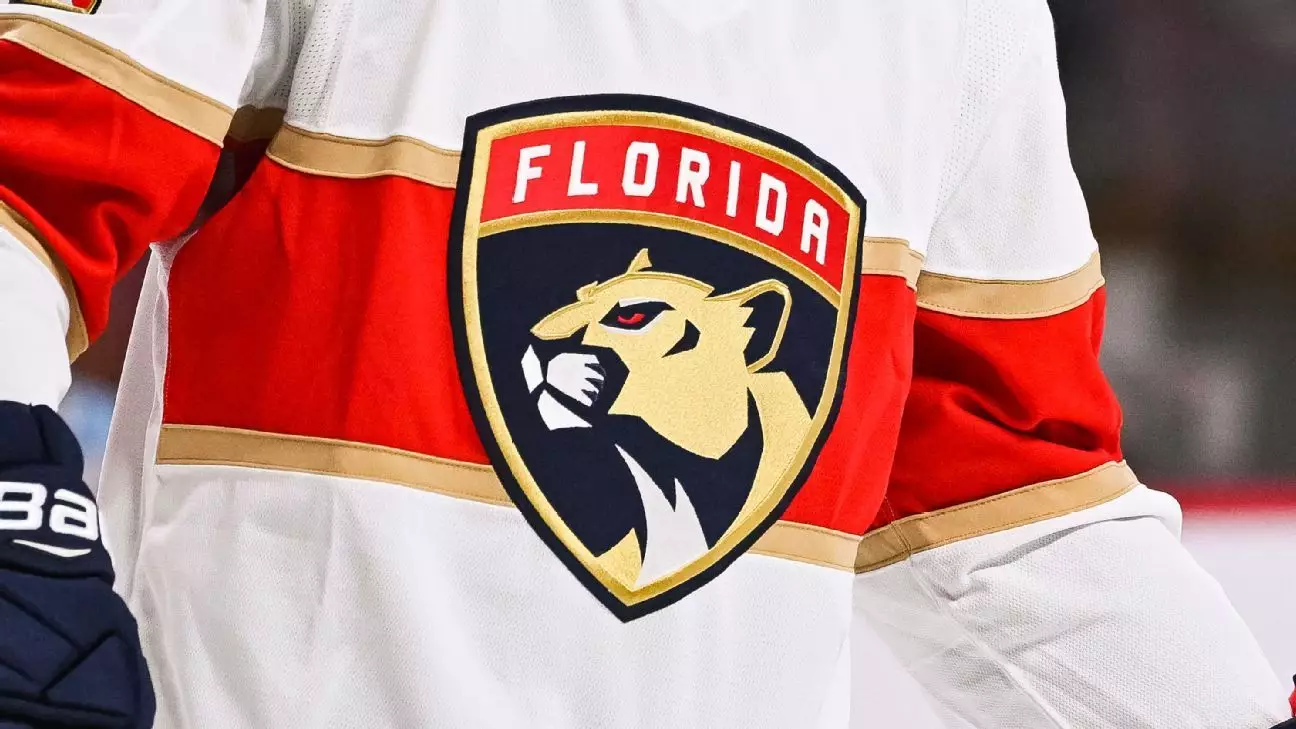The National Hockey League (NHL) finds itself amidst yet another social media controversy, this time involving Doug Cifu, a minority owner of the Florida Panthers. Cifu’s recent suspension from league involvement has forced fans and analysts alike to take a closer look at the intersection of sports, politics, and personal responsibility. Social media has become an undeniable force in shaping public personas and the reputation of organizations, and Cifu’s offensive remarks highlight the volatile nature of combining these realms.
On a night filled with playoff intensity, Cifu indulged in a heated exchange with a Toronto Maple Leafs fan that spiraled into territory that many would deem catastrophic for someone associated with a professional sports franchise. Engaging in a discussion that veered away from hockey into the political arena, particularly the sensitive issue of the Israeli-Palestinian conflict, he drew sharp rebuke not just from fans but the league itself. This precarious situation prompts a significant question: How far should personal beliefs and comments extend into professional life, especially within public forums?
The Fallout of Public Expression
Cifu’s transgressions were not mere slip-ups; they represented a series of thoughtless tweets that would cause major ramifications for any public figure. The moment he responded vitriolically to a Canadian fan, Cifu blurred the lines between healthy competition and personal attack, not to mention involving polarizing global issues. The NHL later issued a statement declaring that his posts were unacceptable, emphasizing a commitment to maintaining professionalism and respect within its ranks. This brings to the forefront a critical discourse about whether athletes and owners should be held accountable for their expressions on social media platforms.
The reaction was swift, and the move to suspend Cifu reflected a necessary response from the NHL, an organization that must guard against actions that could tarnish its brand. It highlights the fragility of reputation in sports; a single word or phrase can create an uproar that engulfs not just the individual but the entire franchise. Cifu’s notable position as vice chairman of the Panthers, combined with his leadership role in Virtu Financial, places him as a target for scrutiny, elevating the expectations of his conduct.
Corporate Responsibility and Ethical Standards
Cifu’s public apology, indicating a commitment to rectifying his behavior, adds yet another layer to the conversation around corporate ethics in sport. The NHL must navigate the precarious balance of allowing for freedom of speech while simultaneously demanding a standard of professionalism that resonates with its fan base. The franchise’s response to this incident is likely to influence public perception deeply, especially when considering the high stakes of the postseason that the Panthers are engaged in as defending champions.
The Panthers’ management must now contemplate the long-term implications of Cifu’s comments. Will this affect sponsorships or the fan experience? The ripple effects of such comments can resonate in sales, partnerships, and even on-ice performance, as team dynamics could be influenced by external distractions.
The Role of Social Media in Modern Sports
Social media has ushered in a new age for athletes and team executives, where every thought and opinion can be broadcasted in real-time. However, this power comes with a distinct cautionary tale. For someone in Cifu’s position, impulsive tweeting can lead to a volley of consequences far beyond a few negative comments. The ephemeral nature of social media can easily transform into lasting repercussions. His statements illustrate how quickly a moment of anger can lead to serious personal and professional fallout.
Moreover, the tension surrounding his remarks reveals a critical junction where sports fans and players often intersect with global issues. Cifu’s comments, while not directly related to the game, intertwine sports with geopolitics in a way that poses challenges for organizations striving to create safe and inclusive spaces for all fans.
By examining Doug Cifu’s suspension, we see more than just an isolated incident; it is a reflection of the ongoing struggle between individual expression and collective responsibility within the sports industry. How organizations react and adapt will dictate the trajectory of their relations with fans, and perhaps ultimately, the culture within professional sports as a whole.


Leave a Reply